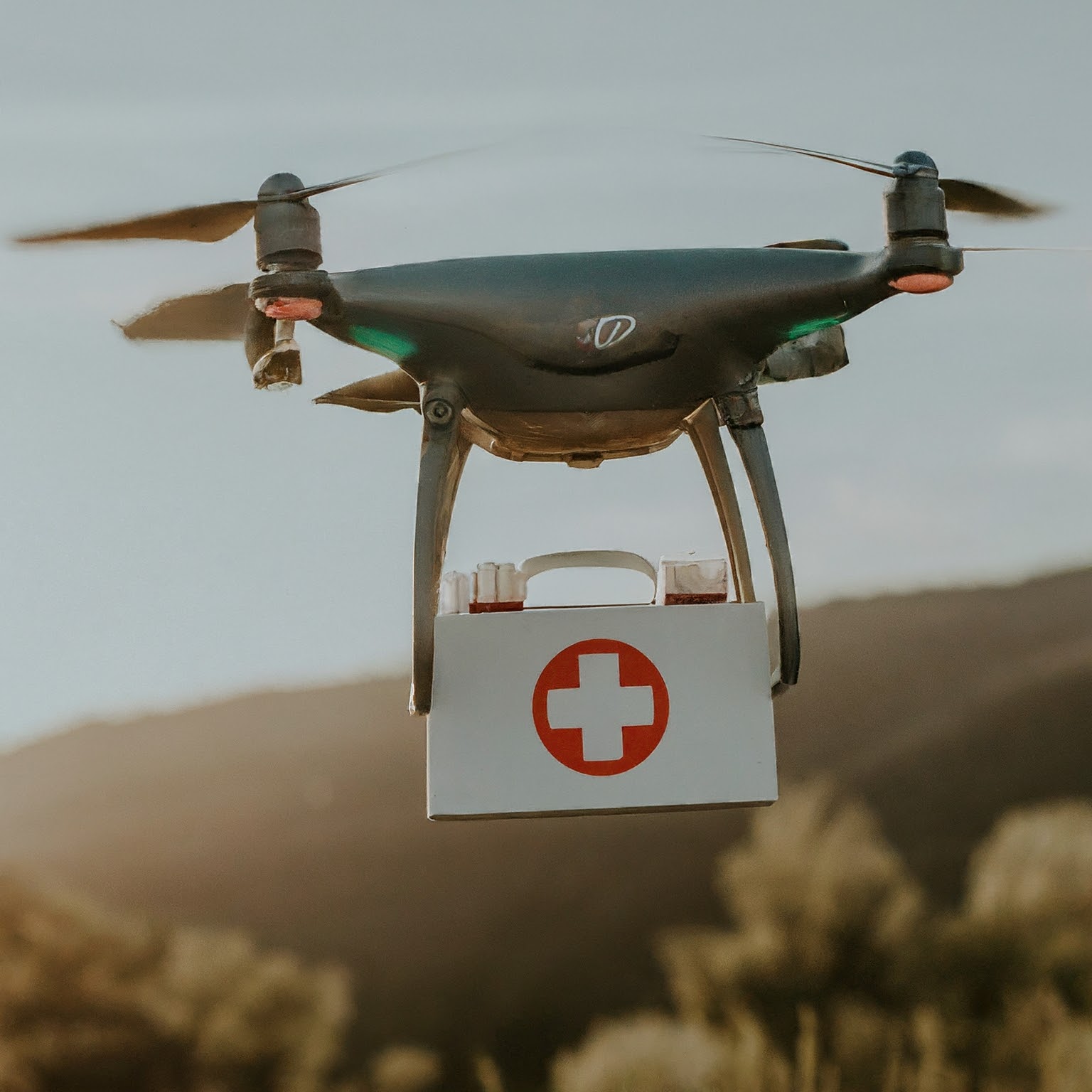Drones are rapidly evolving and finding new applications in various fields. One promising application is in healthcare, where drones can be used to deliver medical supplies to remote and underserved areas.
Benefits of Using Drones for Medical Deliveries:
- Increased access to healthcare: Drones can help improve access to healthcare for people in remote and isolated areas that are difficult to reach by ambulance or other ground vehicles.
- Faster delivery times: Drones can deliver medical supplies faster than ground vehicles, especially in areas with heavy traffic congestion.
- Increased efficiency: Using drones can help improve the efficiency of healthcare delivery systems by reducing the cost and time required to deliver medical supplies.
- Improved safety: Using drones can help improve patient safety by reducing the risk of accidents and injuries that can occur when delivering medical supplies by ground vehicles.
Challenges of Using Drones for Medical Deliveries:
- Safety and regulations: Ensuring safe drone flights and avoiding accidents requires clear and strict regulations.
- Technology: To ensure drones can fly safely and efficiently in various weather conditions, drone technology needs improvement.
- Public acceptance: To increase public understanding and acceptance of using drones for medical deliveries, education and outreach programs are necessary.
UK Trial:
The Civil Aviation Authority (CAA) in the UK has announced plans to trial the use of drones for medical supply deliveries. The trial will take place in several areas across the UK, including the Isle of Wight and Cornwall.
The trial will focus on several aspects, including:
- Drone flight safety: The trial will be conducted to ensure drones can fly safely and avoid the risk of accidents.
- Efficiency: The trial will measure the efficiency of using drones for medical deliveries compared to ground vehicles.
- Public acceptance: The trial will gauge the level of public acceptance of using drones for medical deliveries.
Other Potential Applications of Drones in Healthcare:
- Delivering medication: Drones can directly deliver medication to remote and underserved areas, especially in developing countries with limited healthcare access. This increases patient access to essential medicines and improves their quality of life.
- Delivering blood and tissue samples: Laboratories can receive blood and tissue samples delivered by drones for analysis. This speeds up disease diagnosis and improves treatment effectiveness.
- Remote patient monitoring: Equipping drones with cameras and sensors allows for remote patient monitoring. Doctors can then monitor patient conditions in real time and provide timely interventions if needed.
- Mapping remote areas for healthcare needs: Drones can map remote and underserved areas, helping governments and health organizations identify the healthcare needs of the population in those regions. This allows for more effective resource targeting.
- Spraying insecticides for mosquito-borne disease control: Drones can spray insecticides to control mosquito-borne diseases like malaria and dengue fever. This reduces disease spread and improves public health.
The use of drones in healthcare has the potential to revolutionize healthcare delivery by increasing access to care, improving healthcare service quality, and boosting healthcare system efficiency. However, safety and regulations must be carefully considered when using drones. With cooperation from various parties, the use of drones in healthcare can provide maximum benefits to the community.






